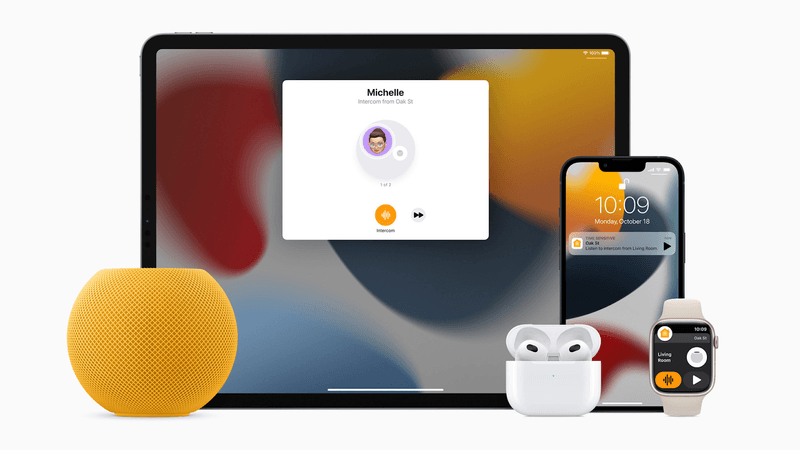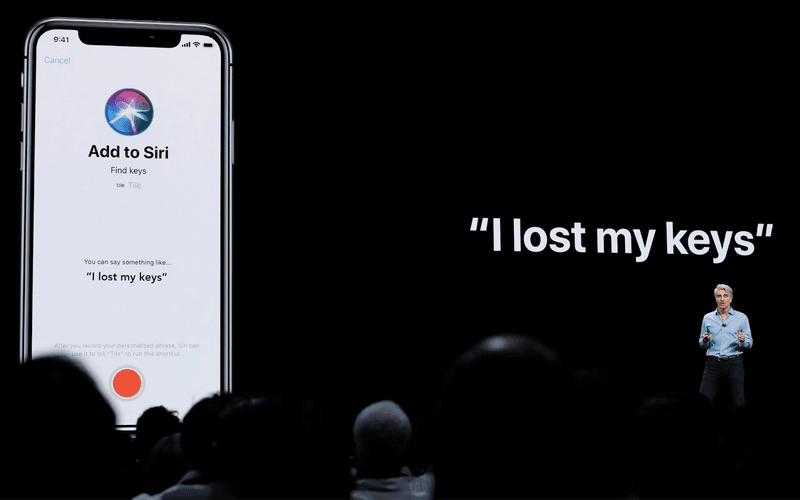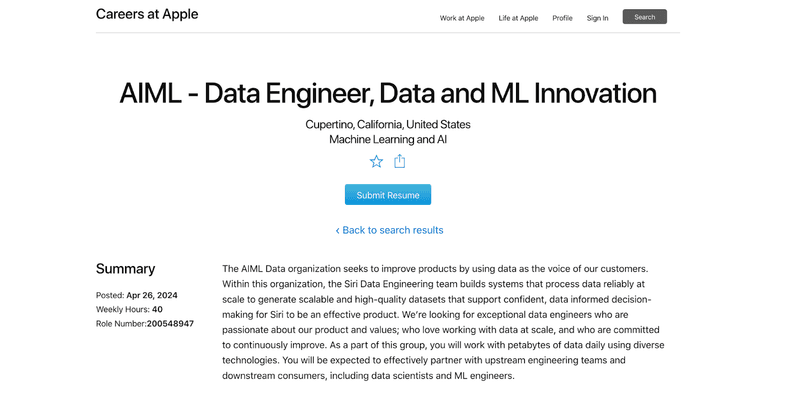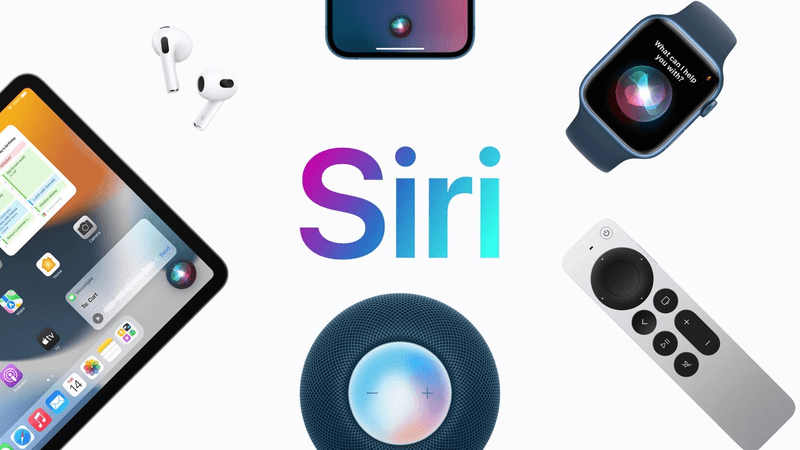Is Apple Developing its Own AI? ( New Findings from Apple New Acquisition )
Artificial intelligence (AI) has become a battleground for tech giants.
Companies like Google and Bing are racing to integrate AI features into their mobile and laptop products, offering functionalities like smarter assistants and better user experiences on their devices.
Apple, known for its focus on user privacy and custom-designed hardware, has been noticeably quieter on the AI front.
But is Apple truly lagging, or are they taking a different approach altogether?
Also, there has been a lot of buzz about Apple in discussions regarding Google integrating Gemini into the iPhone.
Is that true?
Where does Apple stand in the AI race?
Let's uncover all those details by understanding Apple's current efforts in the world of AI and exploring their strategies, acquisitions, and potential future directions.
We'll examine whether Apple is playing catch-up or creating its unique path in the generative AI field. So let's get started.
What is Apple Planning for Siri?

Apple hasn't revealed all its cards for Siri's future, but based on recent rumours and the company's overall AI strategy, here are some AI Siri possibilities we can see:
1. Smarter Assistant: Siri might get a significant upgrade in understanding natural language. This could mean having more complex conversations, asking follow-up questions, and even predicting your needs based on context.
2. Improved Integration: Siri could become more seamlessly integrated across all your Apple devices. Imagine starting a task on your iPhone and seamlessly picking it up on your Mac or iPad with Siri's help.
3. Focus on Privacy: Apple is known for prioritizing user privacy. So, any Siri improvements likely involve keeping your data secure while making the assistant more helpful.
4. Generative AI Assistant: This is a long shot, but with Apple's reported work on generative AI, Siri might one day be able to create things for you. Imagine asking Siri to write a poem or summarise a complex document in your own words.
Apple's Current AI Efforts
While the exact plans for Siri remain under wraps, Apple is making a big push into the world of Artificial Intelligence (AI).
Here's a breakdown of their current efforts in the generative AI right now:
1. Building Powerful AI Hardware: Apple is rumored to be designing its own AI server chip.
This super-efficient chip would be built using advanced technology and allow Apple to fine-tune its data centres for maximum AI performance.
2. AI on Your Devices: Apple isn't just focusing on the cloud.
They're integrating AI directly into their devices, like iPhones and iPads. This means features like facial recognition and improved photography rely on smart on-device processing, making them faster and more secure.
3. Generative AI: This exciting field allows AI to create new things, like text or images. Apple is reportedly working on this technology, which could lead to smarter features in apps like Photos or even entirely new creative tools.

If we get deeper into chip manufacturing, Apple is reportedly designing its super-powerful chip for artificial intelligence (AI), specifically for use in its data centres.
This chip, expected to enter mass production by late 2025, would be built using cutting-edge technology from Apple's partner TSMC, making it highly efficient and much faster than previous versions.
This move reflects Apple's strategy to control more of its manufacturing process (called vertical integration).
By designing its own AI chip, Apple can customize it to work perfectly with its software, potentially leading to significant improvements in performance and efficiency in its data centres.
These data centres power cloud-based AI tools and services. While Apple prioritizes on-device AI processing for many features on iPhones and iPads, some tasks require the immense power of cloud computing.
This new chip would ensure these cloud-based AI tasks run smoothly by the second half of 2025 when it's expected to be integrated into Apple's servers.
What it Means for You: Apple's AI efforts aim to make your devices smarter and more helpful. Imagine an iPhone that can anticipate your needs, a Siri that understands you better, or photo editing tools that automatically enhance your pictures.
This is the future Apple is working towards.
However, it's important to remember that these are just rumours and predictions. Apple often keeps its plans close to the chest until they're ready to unveil a finished product.
But one thing is clear: Apple is betting big on AI, and the results could significantly change how you interact with your Apple devices in the coming years.
Apple Silent AI Acquisitions to Integrate Generative AI Features to Siri

Image Credit: The Telegraph
Apple recently bought a small French company called Datakalab. This might seem random, but it's a big deal for Siri and future iPhones. Here's why:
Datakalab deals with making AI run faster on devices: Imagine a powerful computer program that can understand language or create images. These are called "large language models" (LLMs), but they're usually too big for phones. Datakalab can shrink these models down so they fit on iPhones.
This could make Siri much smarter: Siri is helpful, but sometimes it struggles. With Datakalab's tech, Siri could understand you better and do more complex things without an internet connection.
Apple wants Siri to be private: When Siri uses the internet, your questions might be seen by others. Datakalab's tech could keep Siri's work on your iPhone, making it more secure.
It's not happening soon: Even though Apple bought Datakalab, it usually takes a while for new tech to show up in iPhones.While exciting, this new tech likely won't be in iPhones for a while. We might not see a super Siri until 2026!
Overall, Apple's investment in Datakalab shows their commitment to making Siri a powerful and private AI assistant that works directly on your iPhone, while also aiming to establish a strong foothold in generative AI technology.
Apple's Mass Hiring to Create Generative AI Technology

Apple has been hiring a lot in recent times for AML, Computer Vision, and many more generative AI technology-related jobs.
You can check out the Apple career page from here.
So what does this mean?
Apple is trying hard to generate the next ChatGPT, or Gemini for Apple iPhones and they are trying to be more efficient and powerful. Here are some predictions on why they are hiring for some specific job roles
Apple's job postings reveal a focus on several key areas:
Machine Learning Infrastructure: Building the foundation for these advancements requires robust systems to manage data and processing power.
Deep Learning and Reinforcement Learning: These techniques are crucial for training AI models to learn and make decisions based on real-world data.
Natural Language Processing and Speech Technologies: This team focuses on how AI understands and interacts with human language, paving the way for a more natural and intuitive Siri experience.
Computer Vision: This team tackles the world of computer vision, developing algorithms that analyze images and sensor data to power features like object detection or advanced photo editing.
What about the Big News of Apple in the Talks of Google for Gemini in iPhone?

Image Source: Business Today
There has been a lot of buzz on the internet about the rumours of Apple integrating Google's powerful Gemini AI system into iPhones. Also, it seems like there have been many talks between Apple and Google CEOs.
However, recent signs suggest that those talks might not have gone too well, or Apple might be considering creating its own Gemini or ChatGPT for Siri.
Here's why Apple might be going its way with generative AI:
Apple's Internal Efforts: We previously discussed Apple's acquisition of Datakalab, a company specializing in compressing large language models (LLMs) for on-device use. This suggests Apple is actively developing its own generative AI technology.
Focus on User Experience and Privacy: Apple prioritizes tight control over user data and experience. Integrating a third-party AI system like Gemini could compromise that. Developing their own AI allows Apple to tailor it specifically to iPhones and user privacy needs.
Chipset Independence: The news of Apple designing its own AI server chip highlights its desire for hardware independence. Partnering with Google for AI would create a reliance on their technology. Building in-house AI leverages their existing chipsets for a more unified system.
Apple's strategy seems to be two-pronged:
Datakalab Acquisition: This acquisition focuses on shrinking LLMs for on-device processing, making Siri smarter and potentially more private.
Custom AI Server Chip: This chip, designed for data centre use, could significantly improve the performance and efficiency of Apple's AI infrastructure, powering future AI features across their devices.
The Takeaway: While the talks with Google might be off the table, Apple is heavily invested in building its generative AI future.
This could lead to more powerful, private, and user-friendly AI features seamlessly integrated into iPhones and other Apple products.
What is The Future of Apple AI?

Apple is surely bringing many AI technologies to its Apple devices, focused on making Siri a smarter and more private assistant while establishing itself in generative AI technology.
Here's a breakdown of what we can expect:
A More Capable Siri: Apple is likely investing heavily in improving Siri's capabilities. This could include:
Better Natural Language Understanding: Siri might understand you better, allowing for more complex conversations and follow-up questions.
On-Device Processing: Datakalab's technology suggests Siri could function more on your device, potentially making it faster and more secure.
Generative AI Integration: Siri might someday leverage generative AI to complete tasks like writing different creative text formats or summarizing complex documents.
Maximum Privacy: Apple prioritizes user privacy, and its AI advancements are likely to reflect that. Here's how:
Reduced Reliance on Cloud Processing: On-device processing with Datakalab's tech could mean fewer data sent to the cloud, potentially improving privacy.
Custom-Built AI for Apple Devices: Developing its own AI system allows Apple to customize it to iPhones and iPads, potentially with stronger privacy safeguards built-in.
A Long-Term Vision: While exciting, these advancements likely won't be immediate. Here's why:
Datakalab Acquisition is Recent: Integrating this new tech into iPhones could take time.
Custom AI Chip Still in Development: The AI server chip won't be operational until late 2025 at the earliest.
Recent Rumors Suggest Apple might be going Solo in Generative AI:
Datakalab Acquisition Focuses on In-House Tech: This suggests Apple wants to develop its own generative AI solutions.
Custom AI Chip Hints at Hardware Independence: Building their chip reduces reliance on external technology.
Apple's future in AI is about building a powerful yet private Siri experience.
While we might not see a supercharged Siri for a few years, Apple's investments in generative AI and chip development hint at a future filled with exciting AI features seamlessly integrated within your Apple devices.
FAQs
1. Is Apple Working on a Competitor to LaMDA or Bard?
Yes, Apple is likely developing its competitors to generative AI models like LaMDA and Bard.
This is evidenced by their acquisition of Datakalab (a company specializing in on-device large language models) and their focus on building a custom AI chip.
2. Why is Apple Developing its Own AI chip?
Apple designs its own AI chip for several reasons, some of which include:
Performance and Efficiency: A custom chip allows Apple to optimize AI processing for their devices and data centres.
Hardware Independence: Reduces reliance on external technology and potentially improves security.
Integration: A custom chip can be better integrated with existing Apple hardware for a more unified system.
3. Is Apple Going to Partner with Google for AI?
No, Apple is most likely not going to partner with Google.
Apple seems to be focusing on developing its own generative AI technology based on its recent acquisitions and job postings.
Comments
Your comment has been submitted